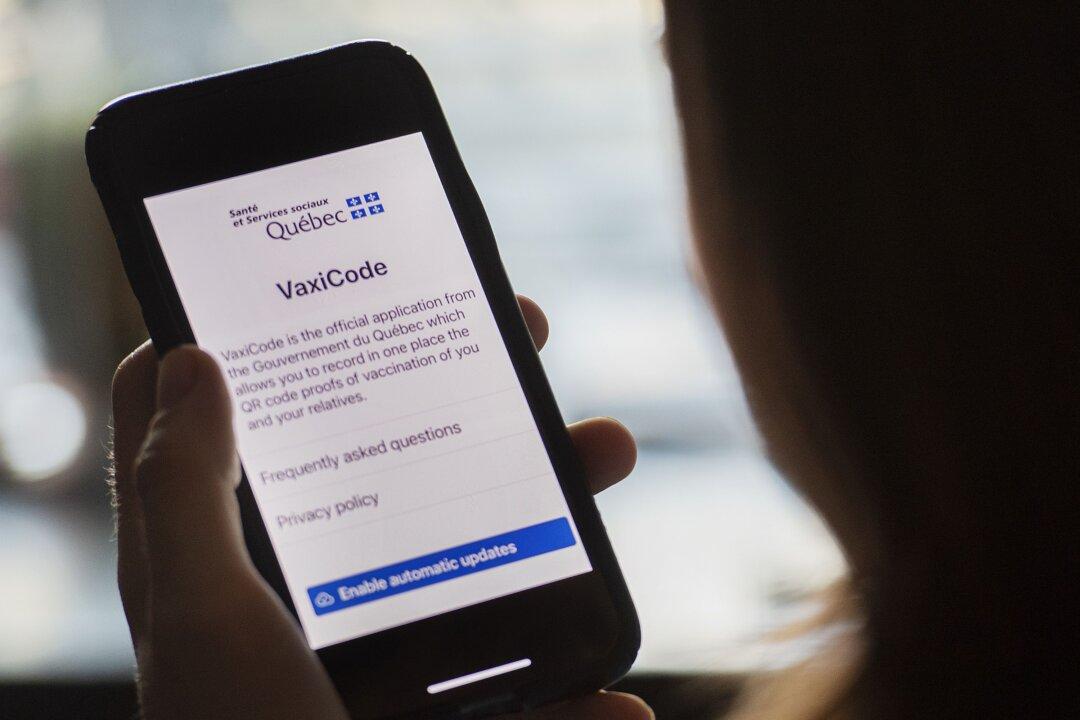The adoption of vaccine passports by three Canadian provinces, the federal government, and many universities is bound to face legal challenges, say experts, forcing courts to weigh whether requiring vaccination under such circumstances is a justifiable curtailment of constitutional rights and liberties.
British Columbia announced on Aug. 23 that those aged 12 and above will require proof of vaccination starting Sept. 13 at places like restaurants, recreational facilities, casinos, and indoor organized gatherings such as ticketed sporting events, weddings, and conferences. Quebec’s mandatory vaccination passport for essential services will come into effect on Sept. 1, while Manitoba is requiring all provincial employees who work with vulnerable populations to be fully immunized by Oct. 31 or undergo regular testing.





